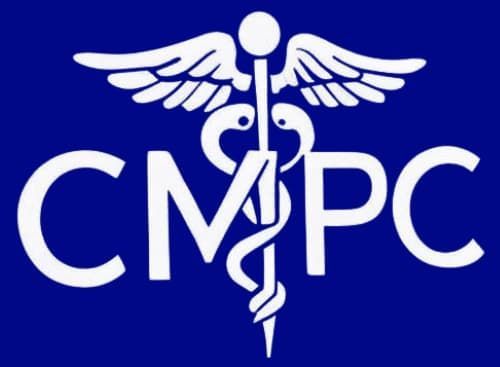
Are you concerned about how your weight might be affecting your overall health?
You're not alone. Many of our patients across Ottawa come to us with similar worries, wondering if their current weight puts them at increased risk for developing severe health conditions. Understanding this connection is the first step toward taking control of your weight management journey.
At Chatterjee Medicine Professional Corporation (CMPC), we've helped countless individuals throughout the Ottawa, Gatineau, and Outaouais region address their weight concerns and improve their overall health outcomes.
This comprehensive guide will explore the relationship between weight and health risk factors, helping you understand where you stand and what steps you can take to protect your health for years.
Understanding the Link Between Weight and Health Risks
Residents face unique challenges when it comes to managing weight. Our long, cold winters can make outdoor activities difficult for several months of the year, and our busy urban lifestyle often leads to convenience-based food choices that may not support healthy weight management.
When we talk about weight-related health risks, we're typically referring to conditions associated with having a Body Mass Index (BMI) in the overweight or obese categories. BMI is calculated by dividing your weight in kilograms by your height in square meters.
While BMI has limitations as a measurement tool, it provides a helpful starting point for discussing potential health risks.
- Overweight: BMI between 25 and 29.9
- Obesity Class I: BMI between 30 and 34.9
- Obesity Class II: BMI between 35 and 39.9
- Obesity Class III: BMI of 40 or higher
Research consistently shows that as BMI increases, so does the risk of developing various health conditions. However, it's important to note that risk factors are complex and influenced by many variables, including:
- Family history and genetics
- Distribution of body fat (particularly abdominal fat)
- Lifestyle factors like diet, physical activity, and stress
- Pre-existing health conditions
- Age and gender
Let's explore the specific health conditions that may be influenced by weight status, keeping in mind that everyone's health journey is unique.
Cardiovascular Conditions: When Weight Affects Your Heart Health
Heart Disease and Stroke
Across our clinics, cardiovascular concerns rank among the top health issues we discuss with patients managing their weight. Excess weight places additional demands on your heart, forcing it to work harder to pump blood throughout your body. This increased workload can lead to:
- Elevated blood pressure (hypertension)
- Higher levels of LDL cholesterol (the "bad" cholesterol)
- Lower levels of HDL cholesterol (the "good" cholesterol)
- Increased triglycerides (blood fats)
These factors significantly increase your risk of developing coronary artery disease, where your heart's blood vessels narrow or become blocked. When blood flow to the heart is restricted, you may experience chest pain (angina) or, in severe cases, a heart attack.
Similarly, stroke risk increases with excess weight. Strokes occur when blood flow to the brain is interrupted by a clot (ischemic stroke) or bleeding (hemorrhagic stroke). The same vascular changes that affect your heart can impact blood vessels in your brain, increasing stroke risk significantly.
Atrial Fibrillation
Another cardiovascular condition we frequently discuss with our patients is atrial fibrillation (AFib), an irregular heartbeat that can lead to blood clots, stroke, and heart failure. Research shows people with obesity have a 40-50% higher risk of developing AFib compared to those with a healthy weight.
The relationship between weight and AFib appears to be related to:
- Structural changes in the heart caused by excess weight
- Increased inflammation throughout the body
- Changes in hormones that affect heart rhythm
- Sleep apnea, which is more common in people with obesity
Heart Failure
Heart failure, a condition where your heart can't pump blood effectively, is also strongly linked to excess weight. The strain of pumping blood through a larger body with potentially more resistance due to narrowed arteries takes a toll on the heart muscle over time.
This can lead to:
- Enlargement of the heart
- Weakening of the heart muscle
- Decreased ability to fill with or pump blood effectively
Metabolic Concerns: When Weight Affects Your Body's Processing Systems
Type 2 Diabetes
In our weight management clinics, Type 2 diabetes is one of the most common weight-related health concerns we address. The connection between excess weight and diabetes is powerful, with research suggesting that approximately 90% of people with Type 2 diabetes are overweight or obese.
When you carry excess weight, especially around your abdomen, your body's cells can become resistant to insulin, the hormone responsible for regulating blood sugar levels.
As insulin resistance develops:
- Your pancreas works harder to produce more insulin
- Blood sugar levels remain elevated despite increased insulin production
- Eventually, your pancreas may become unable to keep up with the demand
- Blood sugar levels rise to dangerous levels, leading to diabetes diagnosis
Type 2 diabetes: It is a serious condition that can lead to numerous complications if not properly managed, including:
- Cardiovascular disease
- Nerve damage (neuropathy)
- Kidney damage (nephropathy)
- Eye damage (retinopathy)
- Poor wound healing, sometimes requiring amputations.
- Increased risk of infections
Metabolic Syndrome
Metabolic syndrome is a cluster of conditions that occur together, significantly increasing your risk of heart disease, stroke, and type 2 diabetes. We often see this constellation of risk factors in our excess-weight patients.
You may be diagnosed with metabolic syndrome if you have three or more of the following:
- Large waist circumference (greater than 102 cm/40 inches for men or 88 cm/35 inches for women)
- High triglyceride levels
- Low HDL cholesterol
- High blood pressure
- Elevated fasting blood sugar
The good news for our patients is that metabolic syndrome is highly responsive to lifestyle changes, particularly weight loss. Even modest weight reduction can significantly improve these metabolic markers.
Fatty Liver Disease
Non-alcoholic fatty liver disease (NAFLD) occurs when fat accumulates in the liver of people who drink little or no alcohol. This condition affects approximately 25% of the global population but is much more prevalent in people with obesity (50-90%).
While many people with NAFLD experience no symptoms, the condition can progress to:
- Liver inflammation (non-alcoholic steatohepatitis or NASH)
- Liver fibrosis (scarring)
- Cirrhosis (severe scarring)
- Liver failure
- Increased risk of liver cancer
Learn about innovative weight loss solutions that can help reduce your risk of developing these metabolic conditions.
Respiratory Complications: When Weight Affects Your Breathing
Sleep Apnea
Obstructive sleep apnea is a severe sleep disorder where breathing repeatedly stops and starts during sleep. Sleep disturbances can be particularly problematic in the colder months, when windows remain closed and indoor heating dries the air.
Sleep apnea is strongly linked to excess weight, particularly when fat deposits around the upper airway interfere with normal breathing. When you sleep, these tissues can relax and block your airway, causing:
- Loud snoring
- Gasping for air during sleep
- Waking up with a dry mouth or headache
- Daytime fatigue and difficulty concentrating
- Irritability and mood changes
Left untreated, sleep apnea increases your risk of:
- High blood pressure
- Heart attack
- Stroke
- Type 2 diabetes
- Metabolic syndrome
- Liver problems
- Complications with medications and surgery
Asthma and Breathing Difficulties
People with excess weight often experience more frequent and severe asthma symptoms, and research suggests that obesity may even contribute to the development of asthma in previously unaffected individuals.
This connection may be related to:
- Increased inflammation throughout the body
- Mechanical effects of excess weight on the chest and lungs
- Hormonal factors that affect airway function
Additionally, even without being diagnosed with asthma, people with obesity often experience shortness of breath during physical activity, which can create a challenging cycle where exercise becomes increasingly complex.
Musculoskeletal Issues: When Weight Impacts Your Bones and Joints
Osteoarthritis
As many Ottawans know, joint pain can be complicated during our cold, damp seasons. For individuals carrying excess weight, the pain may be compounded by the development of osteoarthritis.
Osteoarthritis involves the breakdown of cartilage, the cushioning material that protects the ends of bones where they form joints. Excess weight contributes to osteoarthritis in two significant ways:
- Mechanical stress: Each pound of excess weight places about four pounds of additional pressure on your knees when walking. This increased pressure accelerates wear and tear on weight-bearing joints.
- Inflammatory factors: Fat tissue produces proteins that can cause harmful inflammation throughout the body, including in your joints.
The joints most commonly affected by weight-related osteoarthritis include:
- Knees
- Hips
- Lower back
- Feet
Back Pain and Spinal Issues
Many Ottawans spend long hours sitting, whether commuting or working at desks, which can exacerbate back problems related to excess weight. When carrying additional weight, your spine must support a heavier load, potentially leading to:
- Compression of spinal discs
- Herniated discs
- Sciatica
- Alignment issues
- Muscle strain and fatigue
Back pain can significantly impact the quality of life and make physical activity more difficult, creating a cycle where weight gain becomes more likely, further exacerbating back issues.
Discover non-surgical weight loss options that can help reduce strain on your musculoskeletal system.
Cancer Risk: Understanding the Connection Between Weight and Cancer
Research has established clear links between excess weight and increased risk of several types of cancer. According to the Canadian Cancer Society, approximately 3% of all cancer cases in Canada are attributable to excess body weight.
Cancers with the strongest links to excess weight include:
- Breast cancer (particularly in postmenopausal women)
- Colorectal cancer
- Endometrial cancer (cancer of the uterine lining)
- Kidney cancer
- Esophageal cancer
- Pancreatic cancer
- Gallbladder cancer
- Liver cancer
The mechanisms through which excess weight increases cancer risk include:
- Chronic inflammation
- Increased levels of certain hormones, including estrogen and insulin
- Changes in growth factors that affect cell division
- Alterations in the gut microbiome
Understanding your cancer risk factors is important in developing a comprehensive health plan.
Reproductive and Hormonal Issues: Impact on Fertility and Beyond
Polycystic Ovary Syndrome (PCOS)
PCOS affects approximately 8-13% of women of reproductive age and is more common in women with obesity. This hormonal disorder causes enlarged ovaries with small cysts, irregular menstrual cycles, and excess male hormone (androgen) levels.
The relationship between PCOS and weight is complex:
- Excess weight can worsen PCOS symptoms
- PCOS can make weight loss more difficult
- Both conditions involve insulin resistance
Women with PCOS often experience:
- Irregular or absent periods
- Difficulty becoming pregnant
- Excess facial and body hair
- Acne
- Thinning scalp hair
- Darkening of skin in body creases
Fertility Challenges
For both men and women seeking to start families, excess weight can present fertility challenges:
For women:
- Disruption of regular hormonal cycles
- Decreased ovulation frequency
- Increased risk of miscarriage
- Complications during pregnancy
For men:
- Reduced testosterone levels
- Lower sperm count and quality
- Erectile dysfunction
- Decreased libido
Learn about safe and sustainable weight management approaches that can improve reproductive health.
Psychological Health: The Mind-Body Connection
Depression and Anxiety
Mental health concerns affect many people, particularly during our long winter months with reduced sunlight. For individuals managing excess weight, these challenges may be magnified.
Research shows bidirectional relationships between obesity and mental health conditions:
- Depression and anxiety can lead to emotional eating and reduced physical activity, contributing to weight gain
- Weight stigma and discrimination can contribute to psychological distress
- Biological factors related to obesity, including inflammation and hormonal changes, may directly impact brain function and mood regulation.
Studies indicate that people with obesity have a 55% higher risk of developing depression compared to those with a healthy weight. In comparison, people with depression have a 58% higher risk of developing obesity.
Body Image and Self-Esteem
Living in a society that often equates thinness with attractiveness can take a toll on the self-esteem of individuals with excess weight. This impact on self-image can affect:
- Social relationships
- Career opportunities and advancement
- Willingness to participate in health-promoting activities
- The overall quality of life
At CMPC, we understand these psychological aspects are just as important as physical health concerns, which is why our weight management approach addresses both body and mind.
Gastrointestinal Issues: Digestive System Complications
Gastroesophageal Reflux Disease (GERD)
GERD, commonly known as acid reflux, occurs more frequently in people with excess weight. This condition develops when stomach acid flows back into the esophagus, causing irritation and inflammation of the esophageal lining.
The connection between weight and GERD relates to:
- Increased abdominal pressure pushing stomach contents upward
- Changes in hormones that affect digestive function
- Alterations in the lower esophageal sphincter (the muscle that prevents backflow)
Symptoms of GERD include:
- Heartburn
- Regurgitation
- Chest pain
- Difficulty swallowing
- Chronic cough
- Hoarseness
- Sleep disruption
If left untreated, GERD can lead to more serious conditions, including Barrett's esophagus (precancerous changes to the esophageal lining) and esophageal cancer.
Gallbladder Disease
People with obesity have an increased risk of developing gallstones, hard deposits that form in the gallbladder. This risk is particularly elevated during rapid weight loss, so medically supervised weight management is important.
The connection between weight and gallbladder disease relates to:
- Increased cholesterol production
- Changes in gallbladder emptying
- Alterations in bile composition
Gallstones can cause:
- Sudden, intense abdominal pain
- Pain in the right shoulder or between the shoulder blades
- Nausea and vomiting
- Fever
- Jaundice (yellowing of the skin and eyes)
Assessing Your Risk: Beyond BMI
While understanding these potential health risks is essential, it's equally important to recognize that health exists on a spectrum. Many factors beyond weight influence your risk profile.
Key Factors That Influence Your Risk
- Distribution of body fat: Where you carry your weight matters significantly. Abdominal fat, which results in an "apple" shape, poses greater health risks than fat in the hips and thighs, which results in a "pear" shape.
- Metabolic health: Some people with obesity maintain healthy blood pressure, blood sugar, and cholesterol levels, while others with "normal" BMI have metabolic abnormalities. Your current metabolic markers are important indicators of health.
- Fitness level: Research shows that cardiovascular fitness can substantially reduce health risks, even when BMI remains in the overweight or obese category. Regular physical activity provides health benefits regardless of weight.
- Age and duration of obesity: Health risks generally increase with age, and the longer someone carries excess weight, the greater the cumulative impact on various body systems.
- Family history: Genetic factors influence your likelihood of developing obesity and your risk of specific health conditions.
- Other lifestyle factors: Smoking, alcohol consumption, sleep quality, and stress levels all interact with weight to influence your overall health risk.
Warning Signs to Watch For
If you're concerned about weight-related health risks, be vigilant for these potential warning signs:
- Changes in energy levels: Persistent fatigue may signal various conditions, including sleep apnea, heart problems, or prediabetes.
- Breathing difficulties: Shortness of breath, especially during mild exertion or when lying flat, could indicate developing heart or lung problems.
- Joint pain: New or worsening pain in weight-bearing joints may signal osteoarthritis development.
- Skin changes: Dark, velvety patches of skin (acanthosis nigricans) often appear in body folds and creases and may signal insulin resistance.
- Changes in sleep patterns: Loud snoring, gasping, or pauses in breathing reported by a partner could indicate sleep apnea.
- Digestive issues: Frequent heartburn, abdominal pain, or changes in bowel habits warrant medical attention.
- Mood changes: Persistent low mood, anxiety, or loss of interest in previously enjoyed activities could signal depression, which has bidirectional relationships with weight issues.
Taking Control: How Weight Management Can Reduce Health Risks
The encouraging news for our local communities is that many weight-related health risks are modifiable. Studies consistently show that even modest weight loss (5-10% of initial body weight) can:
- Lower blood pressure
- Improve cholesterol levels
- Reduce blood sugar and insulin resistance
- Ease joint pain
- Improve sleep quality
- Enhance mood and energy levels
The Path Forward: CMPC's Approach to Weight Management
We understand that successful weight management requires a comprehensive, individualized approach. Our medical team specializes in providing evidence-based solutions, including the Allurion Gastric Balloon System, a non-surgical option that helps patients achieve significant weight loss.
Our approach includes:
- Thorough medical assessment: We evaluate your health status, risk factors, and weight history to develop a personalized plan.
- Advanced treatment options: We offer innovative solutions, including the Allurion Gastric Balloon, which helps you feel fuller while learning new eating habits.
- Comprehensive support: Our team provides ongoing guidance on nutrition, physical activity, behaviour modification, and emotional well-being.
- Long-term maintenance strategies: We help you develop sustainable habits to maintain your results and protect your health for years.
Learn more about our safe and sustainable weight loss solutions designed specifically for residents of the greater Ottawa region.
Your Next Steps: Taking Action for Better Health
If you're concerned about how your weight might be affecting your health, we encourage you to take these proactive steps:
- Schedule a comprehensive assessment: Understanding your health status is the first step toward improvement. Our clinic provides thorough evaluations to identify existing issues and risk factors.
- Set realistic goals: Rather than focusing solely on an "ideal" weight, consider goals related to improved health markers, increased energy, better sleep, and enhanced quality of life.
- Explore effective treatment options: Learn about evidence-based approaches to weight management, including the Allurion Gastric Balloon System, which may help you achieve significant results.
- Build your support system: Successful weight management is easier with support. Share your goals with trusted friends and family, and consider joining community resources focused on healthy living.
- Focus on overall well-being: Remember that health encompasses physical, mental, and emotional aspects. Approaches that address all these dimensions lead to the most sustainable results.
Moving Forward with Confidence and Support
Understanding the potential health risks associated with excess weight is an essential first step in taking control of your health journey. At CMPC in Ottawa, we're committed to providing compassionate, science-based care that addresses your needs and concerns.
Remember that health exists on a continuum, and every positive change you make contributes to better outcomes. Whether you're just beginning to explore weight management options or seeking more advanced solutions like the Allurion Gastric Balloon System, our team is here to support you every step.
Suppose you've found this information helpful and want to learn more about how specific weight-related health conditions might affect you. In that case, we recommend reading our related article: How Does Being Overweight Affect My Sleep and Energy Levels?
Ready to take the next step in your health journey?
Contact our Ottawa clinic today to schedule a consultation with our medical experts. We can develop a personalized plan to help you achieve lasting health improvements.
Call us NOW to book your appointment and start your transformation journey.










